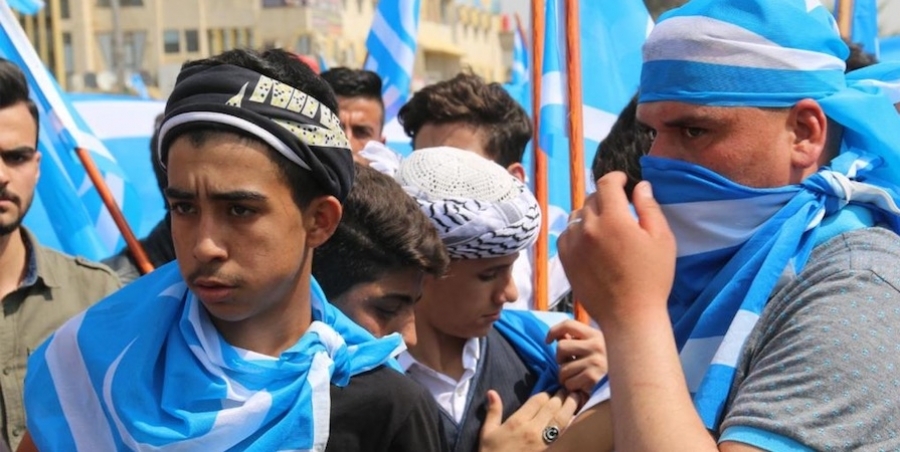by Zekeriya SAY
The Turkish Republic has never had a well-developed “Turkmen policy.”
Despite being right next door, the Turkish people were unaware that “Turkmens” were living in Iraq and Syria. They first became aware of this during the 1991 “Gulf Crisis,” thanks to the efforts of the late Turgut Özal.
Before Özal, the leaders of Turkey had no such issue regarding “Turkmens.” They weren’t concerned with how many Turkmens lived in Iraq and Syria.
Yet, the Turkmens, meaning the “Muslim Oghuz people,” made up the second-largest ethnic group in Syria after Arabs, with a population of about 3.5 million.
According to the 1957 census, Turkmens represented 9% of Iraq’s population.
Despite this, Turkish leaders ignored their own kin, making them invisible in the countries they lived in.
Neither the 1925 nor 1958 constitutions of Iraq mentioned the Turkmens.
In Syria, the situation was even worse.
Facing the threat of assimilation, 2 million of the 3.5 million Turkmens had forgotten their native language, Turkish.
Our Turkmen brothers, whose voices weren’t even heard, were fighting not only to be “counted” but also against oppression, systematic massacres, and tyranny.
Those who resisted all these pressures, who didn’t lose their identity and maintained their essence, immortalized their suffering in songs.
Turkmen who were displaced from their villages, who had no homes or shelters, immortalized the pain they lived with songs like:
“They threw me into the prison of Kirkuk.”
Despite having no crimes or sins, these oppressed people still kept their hopes alive, saying:
“Certainly, one day the years will smile at us.”
Because this “community of the oppressed” was silently carrying out a duty there.
Their mission:
“To protect the lands inherited from their ancestors.”
While the Turkmens, whose books didn’t include “surrender” or “rebellion,” waited, Turkey’s 6th President Fahri Korutürk visited Kirkuk.
The visit, described in the book “The Smiling Face of Our Literature,” is told humorously:
It was the last days of April 1976.
President Fahri Korutürk went to Iraq for an official visit. The Turkmens organized a rare reception for him. A group of Turkmens wanted to present a painting to the President, inscribed with Arabic writing, as a gift from the Turkmens to the President of Turkey.
Upon seeing the Arabic text on the painting, Korutürk became anxious and frowned. He said to the ambassador:
“Where did this painting come from? We are a secular country. It must have verses or something written on it. We shouldn’t get ourselves into trouble.”
The ambassador, leaning toward him, said:
“Sir, there is no need to worry. The painting contains the refrain of a famous Kirkuk song.”
Thus, the President accepted the gift.
The inscription on the painting was as follows:
“Welcome…
You’ve come well, welcome.
I didn’t die and get freed,
Nor did you come to faith.”
But there’s more!
The “visit” ended with a significant impact on the Baghdad government. Thousands of Turkmens who attended the ceremony were detained. After the Turkmens organized such a grand “reception,” the districts of Tikrit and Selahaddin were quickly turned into provinces. Turkmen lands were forcibly expropriated, their associations were shut down, and valuable books were confiscated…
What was supposed to be a morale-boosting visit thus turned into a massive oppression.
Yes!
After the fall of the Ottoman Empire, neither the Turkmens could die and be freed,
Nor did Turkey, awakening to help its brothers, extend a helping hand.
Due to incompetent leaders who misinterpreted Mustafa Kemal Atatürk’s “Peace at Home, Peace in the World” as “Be Silent in the World,” Turkey, for almost a century, “watched silently” the Turkmens asking for help beyond its borders.
In 2011, during the unrest in Syria, Turkey finally sided with the oppressed, and with the “Euphrates Shield” operation, it tore away the veil of a century of “indifference” and “apatheticism.”
On December 8, 2024, forces made up of the HTS under the command of Ahmad al-Shara and Turkmen fighters from the Syrian National Army captured Aleppo, Hama, Homs, Idlib, Deraa, and Damascus, overthrowing Bashar al-Assad’s regime and finally liberating Syria.
Just a few days ago, the “Syrian Revolutionary Commanders” gathered and, by unanimous decision, elected Ahmad al-Shara as the “President.”
What caught my attention the most in this ceremony was the statement of Fehim Ertuğrul İsa, Commander of Sultan Murad Brigade, who had sold everything he owned and spent it all for the Syrian revolution after losing two of his brothers in the civil war, as well as the statements of Seyf Polat Ebubekir, Commander of the Hamza Brigade, and Muhammed Casim, Commander of the Suleiman Shah Brigade, who frequently met with Devlet Bahçeli and received blessings for their cause.
Fehim Ertuğrul İsa, the Sultan Murad Brigade Commander, who said they had faced injustice and aggression for years, stated, “The freedom we desired has been achieved,” expressing confidence that they would now build the new Syria they had dreamed of.
Seyf Polat Ebubekir, Commander of the Hamza Brigade, confirmed his full support for Ahmad al-Shara and said, “This victory didn’t come overnight; rather, it was the result of a long patience and determination.” He added that peace and harmony came thanks to the children of Syria.
Muhammad Casim, Commander of the Suleiman Shah Brigade, stated that they were ready to serve the free Syrian state and said, “Allah honored us with victory.”
Do you see it?!
40-50 years ago, our Turkmen brothers were saying to Turkey, “I didn’t die and get freed, nor did you come to faith.” Now, thanks to Turkey’s open support, they are among the founding actors of the free Syria.
While this is happening in Syria, Turkmens in Mosul, Iraq, at the same time, were expressing their happiness, saying that the “Development Road Project” signed by President Erdoğan, which will connect Turkey to the Faw Port in the Persian Gulf, would solve the unemployment problem in their city, and the Turkmens, who have been subjected to various kinds of oppression for years, would finally find lasting security and peace.
These two cases alone summarize how the partners of the People’s Alliance saved Turkey from a historical shame, how problems like “the economy” will be solved quickly as long as Erdoğan and Bahçeli’s mentality remains in power, and that “there should never be room for panic.”
Source: Haber7.com






